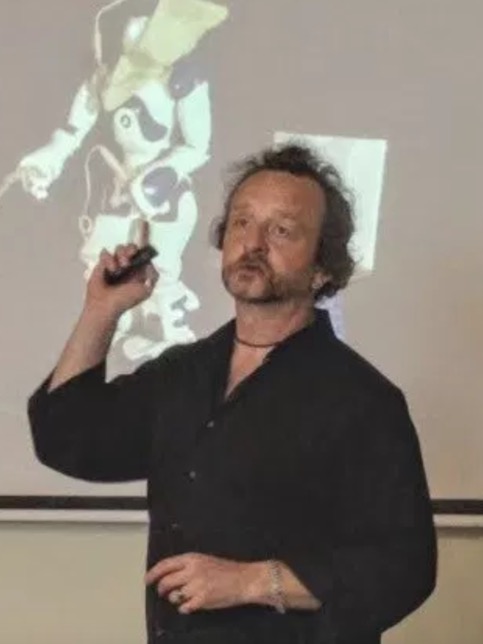It was great to see presentation at RMIT from Damian Schofield, Professor of Computer Science from State University of New York Oswego. Damian is an experienced COIL (Collaborative Online International Learning) practitioner and is the other ‘half’ of the collaboration with Lisa Dethridge from RMIT on Transhumanism. Transhumanism is the study of the crossover between humans and machines; and Damian has a programmable computer chip embedded in his hand. There were a number of points I took from Damian’s presentation –
- For international collaboration to work the students have to like their professor. They want to go to places they know about. The experience must include local knowledge. And it must be affordable.
- BEFORE any work – get to know your partner. COIL lives and dies on personal relationships. It’s a good idea to visit if possible. Use contacts in the COIL network you already know, where possible.
- Cost effectiveness. They can be cheap and sustainable. Program information shows to students the COIL activities and the expectations for global collaboration.
- Damian’s collaborations usually last for about 4 weeks, mostly involving video conferencing. There is a 14 – 16 hours time difference between his students in New York and RMIT in Melbourne. Damian’s New York students were happy to come in the evening for the teleconferences.
- Collaborate on small projects. Keep things separate in terms of tasks and assessments.
Damian has worked with other overseas projects
- VR Interviews between Suny and Spain.
- Using AR teaching kids to build lego robots with Brazil.
- Facebook games – with students from India – exploring cultural differences in gaming.
Why do COIL? – for students it’s fun. So few students get interactions like this elsewhere or in their upbringing. And it’s an easy way to create publications.
As well, student confidence rises dramatically, as does self awareness and overall satisfaction. For staff, job satisfaction rises. COIL also enables opportunities for travel, new research, and increases employability of both staff and students.
A good example of employability skills is in a unit on software entrepreneurship that Damian led. Small groups of students were given a small amount of cash with which to hire designers and developers from overseas to build an app. The skills acquired included working in international groups and managing international teams.
On a side note Damian won many hearts in the room when stating that he refuses to use his university’s preferred LMS, using instead his own instance of Canvas.
